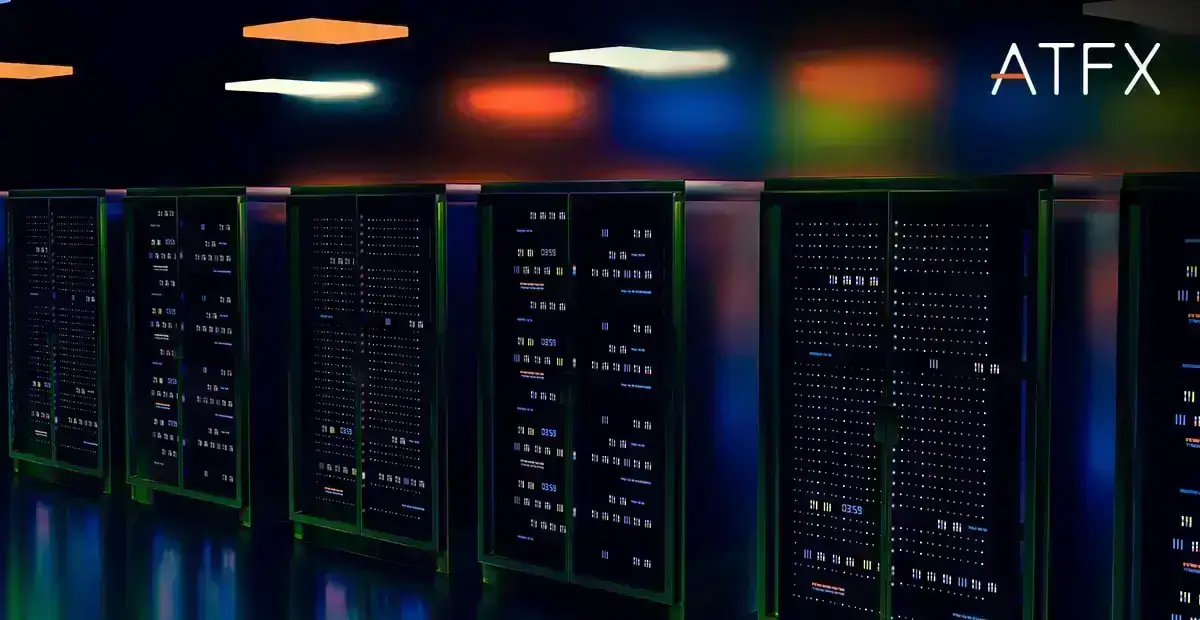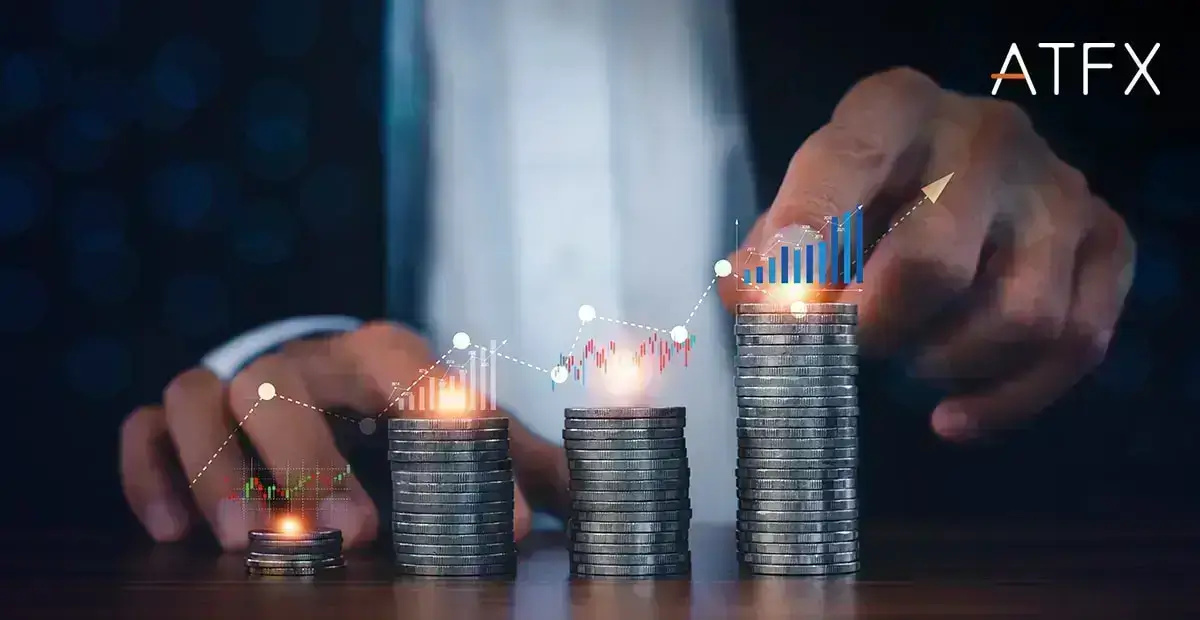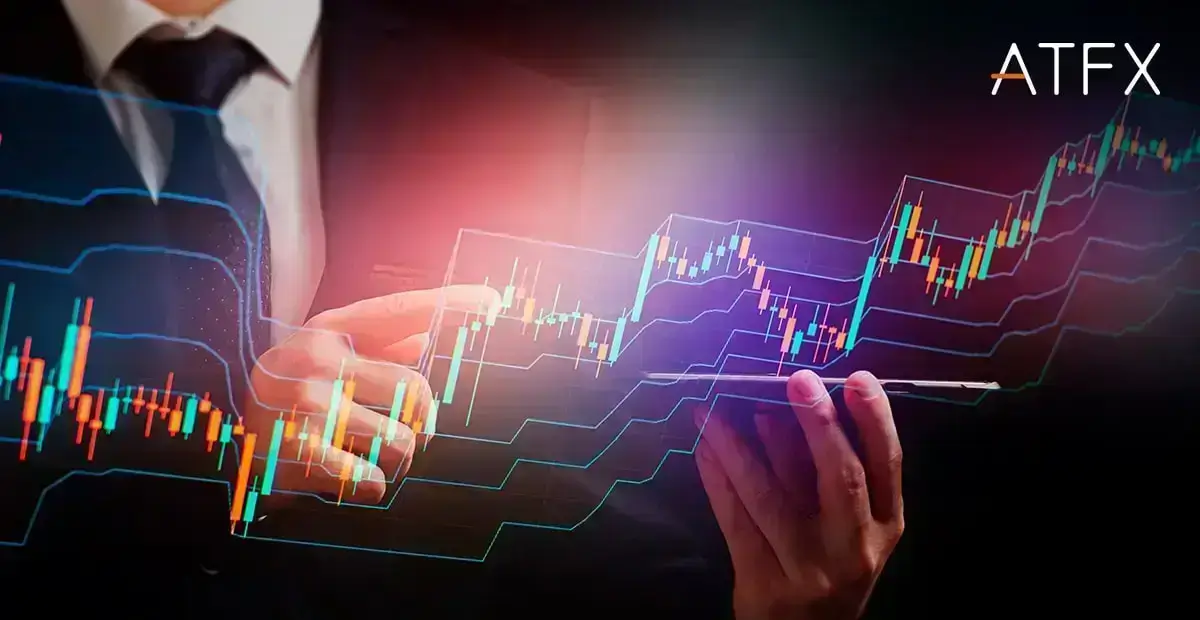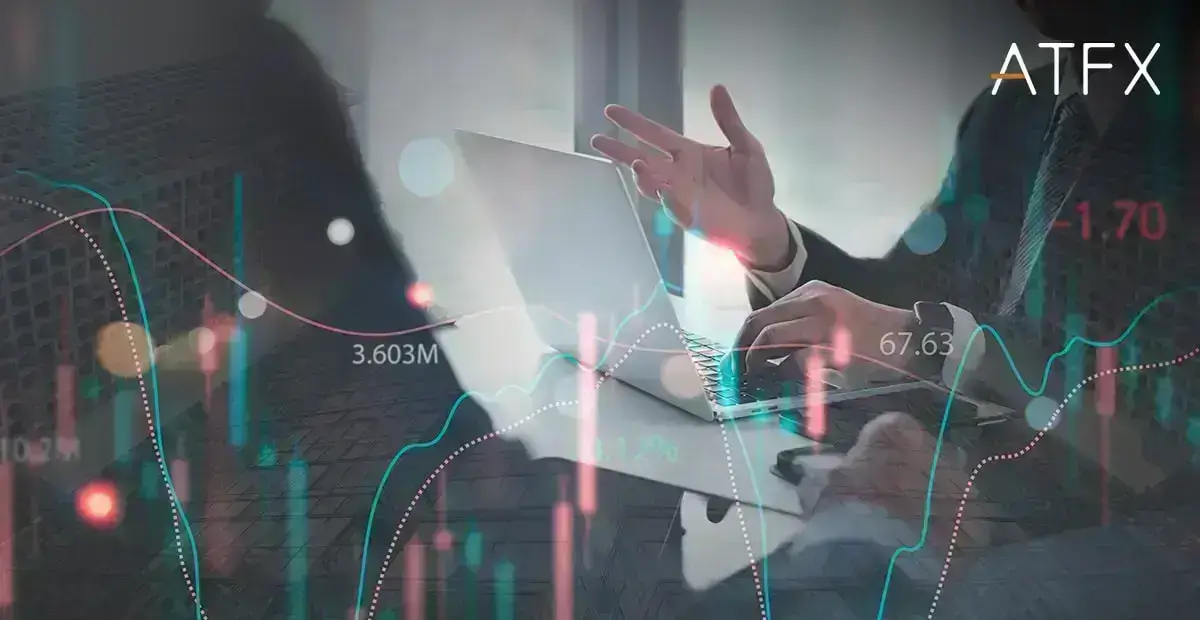There has been growing interest in blockchain technology in recent years due to its potential to transform various industries. Cryptocurrencies are one of the most significant applications of blockchain, making it a popular investment option. Consequently, many investors are seeking ways to invest in blockchain. This article aims to provide guidelines on investing in blockchain, including the benefits and risks of each method.
Table of content
What is blockchain, and how does it work?
How to invest in blockchain: 12 ways
8 Tips for investing in blockchain
Learn Better with a Demo Account
What is blockchain, and how does it work?
Blockchain is a digital ledger technology that records transactions securely and transparently. A network of computers verifies each transaction, and the data is stored in a decentralized system. Once a transaction is added to the blockchain, it cannot be altered, making it tamper-proof. This ensures trust and transparency between parties, making it an ideal technology for various industries.

Why invest in blockchain?
Investing in blockchain technology presents a unique opportunity for long-term growth and innovation. Here are some compelling reasons to consider investing in blockchain:
Blockchain technology offers enhanced security, transparency, and transaction efficiency.
Blockchain adoption is rising in multiple industries, such as finance, healthcare, and supply chain management.
Diversifying investment portfolios with blockchain investments can mitigate risks.
Investing in blockchain technology has the potential to generate substantial returns.
The popularity of blockchain technology is growing, making it a promising investment option for long-term growth.

How to invest in blockchain: 12 ways
There are several ways to invest in blockchain technology, each with benefits and risks.
Buying cryptocurrencies:
This involves purchasing cryptocurrencies such as Bitcoin, Ethereum, or Litecoin on a cryptocurrency exchange. These cryptocurrencies are stored in a digital wallet, and their value is determined by market demand and supply.
Benefits:
- High potential returns.
- Decentralized investment option.
Risks:
- High volatility.
- Unregulated market.
- Cybersecurity threats.

Investing in blockchain stocks:
This involves investing in publicly traded companies involved in blockchain technology. These companies may be involved in developing blockchain-based solutions, providing blockchain consulting services, or investing in blockchain startups.
Benefits:
- Exposure to a specific industry and its growth potential.
Risks:
- Subject to market conditions.
- Regulatory changes.
- High competition.
Investing in blockchain-based funds:
This involves investing in funds that hold a portfolio of blockchain-related assets, such as cryptocurrencies, blockchain stocks, or tokens representing assets on a blockchain network.
Benefits:
- Diversified exposure to the blockchain market.
- Managed by professionals.
Risks:
- Management fees.
- Potential for underperformance.
- Lack of control over investments.
Investing in Initial Coin Offerings (ICOs):
This involves investing in new cryptocurrencies launched through an ICO. Investors receive new tokens in exchange for their investment, and the value of these tokens is determined by market demand and supply.
Benefits:
- High potential returns.
- Ability to invest in innovative blockchain-based projects at an early stage.
Risks:
- High risk of fraud and scams.
- Lack of regulation.
- High volatility.
- Potential for investment loss.
Mining cryptocurrencies:
Using specialized computer hardware to validate and record transactions on the blockchain network. Miners are rewarded with new cryptocurrencies for their efforts.
Benefits:
- Potential for high returns.
- Ability to earn passive income from validating blockchain transactions.
Risks:
- High upfront investment in hardware and energy costs.
- Technical expertise is required.
- Regulatory risks.
- Declining profitability as network difficulty increases.

Investing in Real Estate or Other Assets Tokenized on the Blockchain:
This involves investing in assets represented on a blockchain network as tokens. These tokens can represent real estate, art, or other valuable assets.
Benefits:
- Increased transparency and liquidity compared to traditional asset investments.
- Fractional ownership of assets, enabling smaller investments.
- Potential for higher returns compared to traditional real estate investments.
- Global access to investment opportunities.
Risks:
- High volatility and uncertainty in the cryptocurrency and blockchain market.
- Limited regulation and oversight in the tokenized asset market.
- Risk of fraud or mismanagement by the token issuer.
- Limited liquidity due to the developing nature of the market.
Providing blockchain-based services:
These services include smart contract development, blockchain consulting, or cryptocurrency trading. It’s a way to invest in the growth of the blockchain industry without directly investing in cryptocurrencies or blockchain stocks.
Benefits:
- Opportunity to participate in the growth of the blockchain industry.
- Ability to earn income from providing valuable services.
Risks:
- Highly competitive market.
- Technical expertise is required.
- Regulatory risks.
- Potential for limited demand.

Investing in blockchain incubators and accelerators:
These organizations provide blockchain startups with funding, resources, and mentorship.
Benefits:
- Diversified exposure to a portfolio of blockchain startups.
- Access to expert mentorship and resources.
Risks:
- High risk of startup failure
- limited control over investment decisions
- potential lack of liquidity.
Blockchain ETFs:
Exchange-traded funds (ETFs) track the performance of blockchain-based companies and their stocks.
Benefits:
- Diversification across a portfolio of blockchain-based companies.
- Low entry point compared to investing in individual stocks.
- Easy to buy and sell on major exchanges.
Risks:
- ETFs may not accurately replicate the underlying assets’ returns.
- Exposure to market volatility and risk associated with the ETF sponsor.
Investing in blockchain-related venture capital funds:
This involves investing in startups developing innovative blockchain solutions. This investment option requires significant due diligence and is typically available only to accredited investors.
Benefits:
- High potential returns on investment in successful blockchain startups.
- Ability to influence the direction of a company through active involvement.
- Opportunity to invest in disruptive technologies with long-term potential.
Risks:
- High risk of failure for early-stage startups.
- Illiquidity of investments, as most venture capital investments have long holding periods.
- Limited information is available for investment decisions.

Investing in blockchain patents:
Patent investing involves identifying and investing in blockchain patents owned by companies or individuals.
Benefits:
- Potential for significant returns if the patent is valuable and widely used.
- Protection from competition for the duration of the patent.
Risks:
- Difficulty in accurately valuing the patent.
- Lengthy and expensive legal battles to enforce the patent.
Investing in blockchain infrastructure:
This involves investing in companies that provide the underlying infrastructure for blockchain technology, such as mining hardware, software development tools, and data storage solutions.
Benefits:
- Exposure to the growth potential of blockchain technology without direct involvement in cryptocurrency markets.
- Potential for stable returns through infrastructure providers’ recurring revenue streams.
Risks:
- Dependence on adopting blockchain technology by businesses and individuals.
- Competition from other infrastructure providers.
8 Tips for investing in blockchain
Do Your Research:
To invest in blockchain, it is essential to gain knowledge about the technology, the industry, and investment options. Look for credible sources of information, including whitepapers, research reports, and trustworthy news sources.
Consider Your Risk Tolerance:
Investing in blockchain can be a highly volatile venture. Hence, it’s crucial to assess your risk tolerance before investing. Identify your investment objectives, the period of investment, and the level of risk you are comfortable with, then pick investments that suit your risk profile.
Diversify Your Portfolio:
Don’t put all your eggs in one basket. Diversify your portfolio by investing in a mix of blockchain-related assets, such as cryptocurrencies, blockchain stocks, and blockchain-based funds. This helps spread your risk and potential returns.

Choose Reputable Investment Options:
When investing in blockchain, choose reputable investment options backed by credible companies with a proven track record. Avoid investing in untested ICOs or shady cryptocurrencies with no clear use case.
Stay Up-to-Date:
To stay up-to-date with the evolving blockchain industry, it’s crucial to keep abreast of the latest developments, trends, and regulatory changes. You can follow industry experts on social media, attend blockchain conferences and events, and regularly read industry news to stay informed.
Consider Long-Term Investments:
Since the blockchain industry is still in its early stages, it is expected to expand substantially. Therefore, it’s advisable to contemplate investing in blockchain-related assets with long-term growth potential to maintain a steady increase in value over time.

Be Prepared for Volatility:
Blockchain investments can be highly volatile, with sharp fluctuations in value. Be prepared for this volatility and avoid making impulsive investment decisions based on short-term market movements.
Seek Professional Advice:
If you are a beginner blockchain investor, seeking advice from a financial advisor or an investment manager with industry experience is prudent. With their expertise, they can offer valuable guidance and help you make informed investment decisions that match your investment goals and risk tolerance.

Conclusion
In conclusion, investing in blockchain technology offers long-term growth and diversification of investment portfolios. It’s crucial to conduct thorough research and understand potential risks before investing. The potential benefits make it an attractive investment option for those seeking significant returns.
Learn Better with a Demo Account
If you wish to improve your knowledge of blockchain technology before investing your hard-earned money, we suggest you open a demo account. Leading cryptocurrencies, such as Bitcoin, Ethereum, and Litecoin, are widely available on trading platforms for investors to practice different strategies while still learning from a guide or the free training materials provided. So, open your free demo trading account now!


